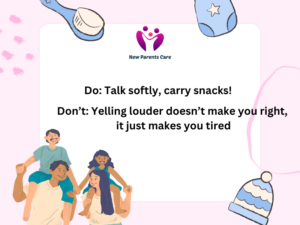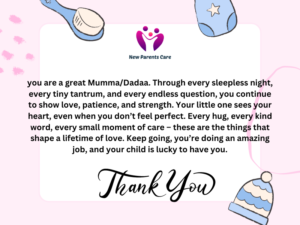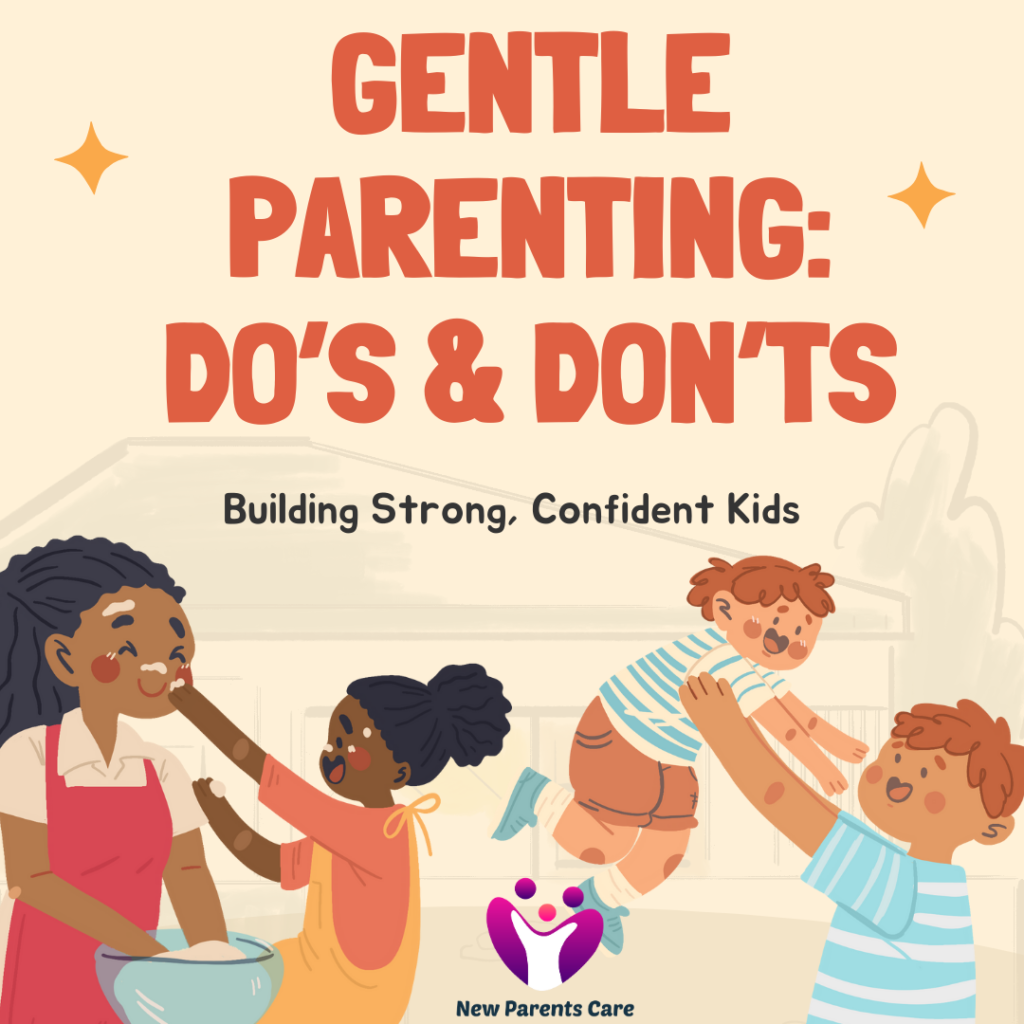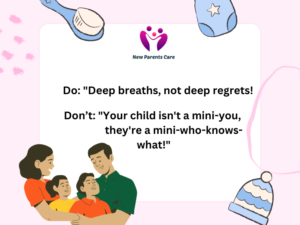Introduction
Parenting is a difficult journey for many as it is about raising the future generation with a balanced physical, emotional and social development. Through parenting, every new parent grows with their child. In this blog we look into the gentle parenting. In this blog, we look into gentle parenting and what the advantages and disadvantages of it are.
There are different tactics that parents across the globe try but only few are actually beneficial. Parenting techniques are many but it is extremely important to give enough attention when choosing because each choice can have a profound effect on your child’s future. This is where GENTLE PARENTING comes to focus. Gentle Parenting is also known by the following names:
- Respectful parenting
- Mindful parenting
- Intentional parenting
How did gentle parenting become popular?
Now the main reason for this type of parenting to gain attraction is because of social media. This type of parenting is a trend now among Gen Z parents who wants to adopt a parenting method that respect their child’s emotions and feelings. The main reason behind why parents greenlit this technique is they feel doing this might have long term positive effects on their children’s mental health.

The four main pillars of gentle parenting are empathy, respect, understanding, and boundaries. These four terms are extremely important if what you want as a parent is more mindful or gentle upbringing. Empathetic when it comes to understanding your children’s worries, respect towards them as individuals and respecting their personal boundaries and lastly be understanding towards their needs and desires.
In this article we discuss in detail about gentle parenting:
What does the term ‘Gentle Parenting’ signify?
Gentle Parenting is a kind of parenting philosophy that was founded in the early 2000s by Sarah Ockwell- Smith. In this type of parenting, it is more of a harmonious collaboration with the parent and the child and is done without any shame, blame or punishment.
Now let’s understand what the PRO’s are and CONs of this type of parenting. Some researchers also claim that gentle parenting is a product of social media.
Advantages of Gentle Parenting
- Fosters Emotional Understanding: It encourages parents to understand the reasons behind a child’s behavior, helping to address the root cause rather than simply reacting to the behavior itself. This approach promotes a deeper emotional connection between parents and children.
- Builds Self-Confidence and Independence: Research shows that children raised with gentle parenting often grow up to be more independent, self-confident, and capable of making decisions. The absence of fear-based discipline allows them to develop healthy emotional resilience.
- Promotes Empathy and Cooperation: It emphasizes empathy, kindness, and respect, which in turn fosters cooperative behavior in children. Children are more likely to model these behaviors, leading to stronger social skills and better relationships.
- Encourages Problem-Solving Skills: Instead of imposing strict rules, this parenting style encourages children to think critically and solve problems on their own. This helps in the development of their decision-making abilities and self-regulation.
- Reduces Power Struggles: By focusing on open communication and collaboration, gentle parenting reduces the power struggles that can arise with more authoritarian approaches. This creates a more peaceful and harmonious family environment.
Disadvantages
- Time-Consuming and Demanding: It requires significant time, patience, and emotional energy. Parents must consistently engage with their child’s emotions, listen attentively, and offer guidance, which can be exhausting, especially for working parents.
- Risk of Inconsistent Boundaries: While the approach encourages understanding, there is a potential risk of inconsistent boundaries. Parents may struggle to find the balance between being gentle and setting firm limits, which can lead to confusion for the child about acceptable behavior.
- May Lead to Delayed Discipline: Since it involves guiding the child to understand their behavior, some parents may find it challenging to enforce immediate consequences. This may delay corrective actions, allowing misbehavior to persist in certain situations.
- Not Always Suitable for Every Child or Parent: It requires a high level of self-regulation from the parent. Some parents may find it difficult to remain calm and patient in all situations, especially in the face of persistent misbehavior. For some, this could lead to frustration or burnout.
- Criticism from Others: It is often misunderstood by others who may view it as being too permissive or “soft.” This can result in external pressure or judgement, which may affect the confidence of parents who choose this approach.
Commonly asked questions
Q: What are the three C’s of gentle parenting?
A: The three c’s in gentle parenting stands for communication, connection and consistency.
Q: Why do people disagree with gentle parenting?
A: Gentle Parenting oftentimes cannot be agreed as it is not always possible to be gentle with your children as in case they never change their misbehaviors.
Q: What are the other names of gentle parenting?
A: The other names are Respectful parenting, Mindful parenting and Intentional parenting
Q: What are the four core principles of this parenting philosophy?
A: The four pillars of gentle parenting are empathy, respect, understanding, and boundaries.

Case study
Maya, a mom of a 3 year old girl for the past few days was frustrated as she didn’t know the reason behind why her daughter was misbehaving. A friend advised her to be more understanding towards her child and find the reason. This incident proves that sometimes in some scenarios understanding is much better than retorting to physical punishment.
Conclusion
In conclusion, gentle parenting is a holistic approach that parents can at least give a try for the better development of their child. With the right amount of understanding and respect towards your child can greatly foster their individuality. Do read the entire blog and leave your valuable comments.
Also check our YouTube channel
Are you wondering which parenting mistakes are most common and whether parenting books are truly worth the hype? Click the below link to explore these!
Parenting Mistakes: Are Parenting Books Really Worth It? (newparentscare.com)



